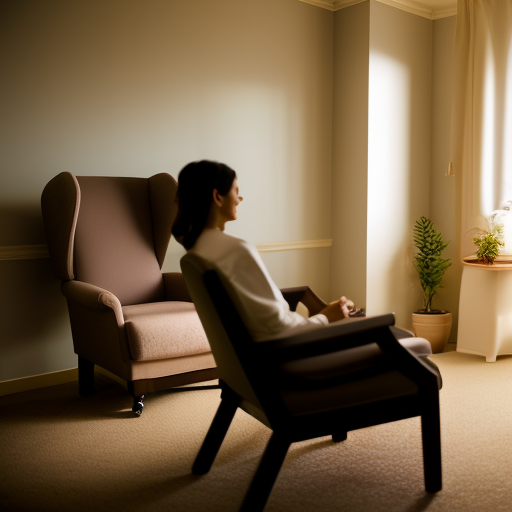"Cherishing Little Steps - A Haven for Baby and Family Journeys"
Dealing With Separation Anxiety
Imagine being a ship lost at sea, tossed and turned by the relentless waves, unable to find your anchor. Separation anxiety can feel just as tumultuous, leaving you feeling unsettled and vulnerable. But fear not, for there are ways to navigate through this challenging terrain.
In this discussion, we will explore the signs and symptoms of separation anxiety, its underlying causes, and most importantly, effective coping strategies for both children and adults.
So, if you’re ready to regain control and find solace in the midst of uncertainty, let’s embark on this journey together.
Key Takeaways
- Separation anxiety is a normal human response to attachment and connection.
- Recognizing the signs and symptoms of separation anxiety is important for providing help and support.
- Attachment style and early traumatic experiences can contribute to separation anxiety.
- Coping strategies for separation anxiety include gradual exposure, open communication, and seeking professional help.
Understanding Separation Anxiety
If you’ve ever experienced the overwhelming dread of being separated from someone you care about, you understand the gripping power of separation anxiety. It’s a complex and often misunderstood condition that can have a profound impact on individuals and their relationships.
Understanding the impact of separation anxiety is crucial in order to provide support and empathy to those who are affected.
One common misconception about separation anxiety is that it only affects children. While it’s true that separation anxiety is more commonly associated with young children, it can also affect adults. The intensity and manifestations may vary, but the underlying fear of being separated from a loved one remains the same. It can cause distress, panic attacks, and even physical symptoms such as headaches or stomachaches.
Another misconception is that separation anxiety is a sign of weakness or immaturity. In reality, separation anxiety is a normal human response to attachment and connection. It’s a reflection of the deep emotional bonds we form with others and the fear of losing them. It’s important to remember that experiencing separation anxiety doesn’t make someone weak or incapable; it simply means that they value their relationships and have a strong emotional connection.
Recognizing the Signs and Symptoms
Recognizing the signs and symptoms of separation anxiety can help you better understand and support those who are affected by this condition. It is important to be able to identify these signs in order to provide the necessary help and support. When someone is experiencing separation anxiety, they may display a range of physical, emotional, and behavioral symptoms.
To help you recognize these signs, here is a table outlining some common symptoms associated with separation anxiety:
| Physical Symptoms | Emotional Symptoms | Behavioral Symptoms |
|---|---|---|
| Stomachaches | Feelings of distress | Clinging to loved ones |
| Headaches | Extreme worry | Refusing to go to school |
| Nausea | Fear of being alone | Crying excessively |
| Rapid heartbeat | Panic attacks | Difficulty sleeping |
If you notice any of these signs in yourself or someone you know, it is important to seek help and support. Recognizing the signs is the first step towards finding effective ways to manage separation anxiety. Seeking professional help from a therapist or counselor can provide valuable guidance and strategies for coping with this condition. Remember, you are not alone in this journey, and there are resources available to help you navigate through separation anxiety.
Causes of Separation Anxiety

Understanding the underlying causes of separation anxiety can provide valuable insights into why individuals experience this condition and how it can be effectively managed. It’s important to recognize that separation anxiety can have various causes, each impacting individuals differently.
Causes:
- Attachment style: People with insecure attachment styles developed in childhood may be more prone to experiencing separation anxiety. This can result from inconsistent caregiving or early traumatic experiences.
- Life transitions: Major life events such as moving, changing schools, or the loss of a loved one can trigger separation anxiety. These disruptions can leave individuals feeling vulnerable and uncertain.
Impact:
- Emotional distress: Separation anxiety can cause intense feelings of fear, worry, and panic when faced with separation from loved ones. The emotional distress can be overwhelming and affect daily functioning.
- Interpersonal relationships: The impact of separation anxiety extends beyond the individual, often straining relationships with partners, family, and friends. The constant need for reassurance and fear of abandonment can create tension and difficulties in maintaining healthy connections.
Understanding the causes and impact of separation anxiety is crucial in finding effective strategies to manage this condition. By addressing the root causes and seeking support, individuals can take steps towards healing and developing healthier coping mechanisms.
Coping Strategies for Children
When it comes to helping children cope with separation anxiety, it’s essential to provide them with effective strategies that can support their emotional well-being. As a parent or caregiver, it can be heartbreaking to witness your child struggle with the fear and distress that separation anxiety brings. However, there are various counseling options and parenting techniques that can help your child navigate through this challenging phase.
One approach is to gradually expose your child to separation in a safe and controlled manner. This can be done by practicing short separations, such as leaving them with a trusted caregiver for a brief period and gradually increasing the time apart. Additionally, creating a predictable routine and providing a comforting item, like a favorite toy or blanket, can help alleviate anxiety.
Another helpful strategy is to encourage open communication. Create a safe space for your child to express their feelings and fears. Assure them that their emotions are valid and that you’re there to support them. Engaging in imaginative play or storytelling can also provide an outlet for them to express and process their emotions.
Furthermore, involving a professional counselor or therapist can be beneficial. They can provide additional guidance and support tailored to your child’s specific needs. They may utilize techniques such as cognitive-behavioral therapy or play therapy to help your child develop coping skills and manage their anxiety.
Coping Strategies for Adults

To effectively cope with separation anxiety as an adult, it’s important to implement self-care practices that prioritize your emotional well-being. Here are some coping strategies that can help you navigate through this challenging experience:
-
Cognitive Techniques:
-
Challenge negative thoughts: When you start feeling anxious, try to identify any negative thoughts that may be fueling your anxiety. Challenge them by asking yourself if they’re based on evidence or if there’s an alternative explanation.
-
Practice mindfulness: Ground yourself in the present moment by paying attention to your thoughts, feelings, and sensations without judgment. This can help you gain a better understanding of your anxiety and manage it more effectively.
-
Self-Care Activities:
-
Engage in relaxation techniques: Explore different relaxation techniques such as deep breathing exercises, progressive muscle relaxation, or guided imagery. These activities can help calm your mind and body during moments of anxiety.
-
Prioritize self-care: Make time for activities that bring you joy and relaxation, such as exercising, reading, or spending time in nature. Taking care of yourself physically and emotionally can help reduce anxiety and improve your overall well-being.
Building a Support System

As you navigate through the challenges of separation anxiety, developing a strong support system can be instrumental in helping you cope and find comfort during this difficult time.
Building connections and finding support from others who understand what you’re going through can make a significant difference in your journey towards healing.
One way to build a support system is by reaching out to friends and family who are empathetic and willing to listen. Sometimes, simply having someone who can lend an ear can provide immense relief. You don’t have to face this alone; there are people who care about you and want to support you through this process.
Additionally, consider seeking professional help from therapists or counselors who specialize in anxiety and separation issues. They can provide you with guidance, coping strategies, and a safe space to explore your feelings. Therapy can offer valuable insights and equip you with the tools to navigate through the challenges of separation anxiety more effectively.
Furthermore, joining support groups or online communities can be a great way to connect with individuals who’ve similar experiences. Sharing your story and hearing others’ can foster a sense of belonging and provide you with valuable advice and perspectives.
Therapeutic Approaches for Separation Anxiety

One effective approach to addressing separation anxiety is through various therapeutic techniques that can help individuals cope and manage their distressing emotions. When it comes to therapeutic interventions for separation anxiety, there are a range of options available.
Here are two sub-lists of therapeutic approaches and alternative treatments that can provide support and relief for those experiencing separation anxiety:
Therapeutic Interventions:
-
Cognitive-Behavioral Therapy (CBT): This approach focuses on identifying and challenging negative thoughts and beliefs associated with separation anxiety. Through CBT, individuals can learn to reframe their thoughts and develop healthier coping strategies.
-
Exposure Therapy: This technique involves gradually exposing individuals to situations that trigger their anxiety, with the guidance of a therapist. By gradually increasing exposure, individuals can learn to tolerate and manage their anxiety more effectively.
Alternative Treatments:
-
Mindfulness-Based Stress Reduction (MBSR): This practice involves bringing one’s attention to the present moment and accepting it without judgment. MBSR can help individuals cultivate a sense of calm and reduce anxiety related to separation.
-
Animal-Assisted Therapy: Interacting with animals, such as therapy dogs, can provide comfort and emotional support. The presence of a furry friend can help individuals feel more secure and reduce anxiety during separations.
Lifestyle Changes to Reduce Anxiety

Making changes to your daily routine and habits can greatly reduce anxiety and help you manage separation anxiety more effectively. By incorporating lifestyle changes that focus on reducing anxiety, you can create a sense of stability and calmness in your life. Here are some practical changes you can make to reduce anxiety:
| Lifestyle Changes | Description | Benefits |
|---|---|---|
| Establish a routine | Creating a daily schedule can provide a sense of structure and predictability, reducing anxiety caused by uncertainty. | Promotes a sense of control and stability. |
| Practice relaxation techniques | Engaging in activities such as deep breathing exercises, meditation, or yoga can help calm your mind and reduce anxiety levels. | Encourages relaxation and reduces stress. |
| Prioritize self-care | Make time for activities that bring you joy and relaxation, such as reading, taking a bath, or going for a walk. Taking care of yourself physically and emotionally is essential for managing anxiety. | Boosts overall well-being and reduces anxiety symptoms. |
Practicing Mindfulness and Relaxation Techniques

To effectively manage separation anxiety, incorporating mindfulness and relaxation techniques into your daily routine can provide a sense of calm and stability. When you practice mindfulness exercises, you’re training your mind to focus on the present moment, rather than getting caught up in worries or anxieties about the future. This can help alleviate the distressing thoughts and feelings that often accompany separation anxiety.
Deep breathing techniques are another powerful tool to help you relax and reduce anxiety. By taking slow, deep breaths, you activate your body’s natural relaxation response, which can counteract the physical symptoms of anxiety, such as rapid heartbeat and shallow breathing. As you breathe deeply, imagine inhaling calmness and exhaling tension, allowing your body to let go of stress and tension.
Engaging in these mindfulness and relaxation practices can have a profound impact on your overall well-being. They can help you cultivate a sense of inner peace and resilience, enabling you to navigate separation anxiety with greater ease. By incorporating these techniques into your daily routine, you can create a safe and soothing space for yourself, where you can find solace and comfort during challenging times.
Seeking Professional Help and Therapy Options

If you find that mindfulness and relaxation techniques are not providing enough relief from your separation anxiety, it may be beneficial to seek professional help and explore therapy options. Sometimes, the support of a trained professional can make a significant difference in managing and overcoming separation anxiety. There are various therapy options available to help you navigate through this challenging experience.
Here is a table outlining three common therapy options for separation anxiety:
| Therapy Option | Description | Benefits |
|---|---|---|
| Cognitive Behavioral Therapy (CBT) | Focuses on identifying and changing negative thought patterns and behaviors associated with separation anxiety. | Helps you develop healthier coping mechanisms and reduce anxiety symptoms. |
| Exposure Therapy | Gradually exposes you to situations that trigger separation anxiety, allowing you to confront and manage your fears. | Helps desensitize you to anxiety-provoking situations and build confidence in your ability to cope. |
| Supportive Therapy | Provides a safe and non-judgmental space to express your feelings and concerns about separation anxiety. | Offers emotional validation and guidance in developing effective strategies for coping with anxiety. |
Long-Term Solutions for Managing Separation Anxiety

To effectively manage and overcome separation anxiety in the long-term, you need to develop personalized strategies that address the root causes of your anxiety and promote emotional resilience.
It’s important to recognize that separation anxiety can have long-term effects on your well-being and relationships.
Here are some strategies to help you navigate this journey:
-
Establish a support system:
-
Surround yourself with understanding and empathetic individuals who can provide emotional support during difficult times.
-
Seek professional help, such as therapy or counseling, to gain insight into your anxiety and learn coping mechanisms.
-
Practice self-care:
-
Engage in activities that bring you joy and help you relax, such as exercise, meditation, or hobbies.
-
Prioritize your mental and emotional well-being by setting boundaries and taking time for yourself.
Separation anxiety can take a toll on your relationships, causing strain and misunderstandings. By addressing the root causes and implementing personalized strategies, you can’t only manage your anxiety but also nurture healthier connections with your loved ones.
Frequently Asked Questions
How Can I Help My Child With Separation Anxiety Who Is Also Dealing With Other Mental Health Issues?
You can support your child with separation anxiety and other mental health issues by using coping strategies and seeking professional interventions. It’s important to be empathetic, analytical, and insightful in order to provide the intimacy they need.
Is There a Specific Age Range When Children Are More Prone to Developing Separation Anxiety?
During early childhood, from around 8 months to 3 years old, children are more prone to developing separation anxiety. Factors such as temperament, attachment style, and life experiences can contribute to its development.
Are There Any Medications That Can Help Alleviate Separation Anxiety Symptoms in Adults?
There are medication options available to help alleviate separation anxiety symptoms in adults. These medications can be effective in reducing anxiety and promoting a sense of calm. It’s important to consult with a healthcare professional to find the right medication for you.
Can Separation Anxiety Be a Symptom of an Underlying Medical Condition?
Separation anxiety can indeed be a symptom of underlying medical conditions. It’s important to explore potential causes and seek treatment options that address both the anxiety and the root cause.
Are There Any Alternative Therapies or Natural Remedies That Can Be Effective in Managing Separation Anxiety?
Looking for natural remedies or alternative therapies to manage separation anxiety? You’ll be glad to know that there are indeed options available. Let’s explore some effective approaches that could bring you relief.
Conclusion
In conclusion, understanding and addressing separation anxiety is crucial for both children and adults.
By recognizing the signs and symptoms, exploring the causes, and implementing coping strategies, individuals can take proactive steps towards managing their anxiety.
Remember, as the saying goes, ‘A journey of a thousand miles begins with a single step.’ With patience, support, and the right tools, it’s possible to overcome separation anxiety and lead a more balanced and fulfilling life.


